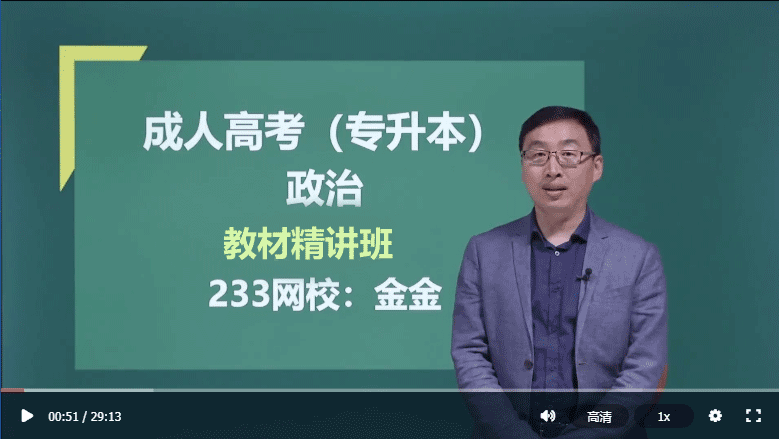2006εΙ¥εÖ®ε¦ΫφàêδΚΚιΪ‰ηÄÉδΗ™εç΅φ€§η΄±η·≠γ€üιΔ‰εèäγ≠îφΓà
ε·Φη·ΜοΦö
ηΩ¦εÖΞεÖ®γ€üφ®Γφ΄üηÄÉε€Κε€®γΚΩφΒ΄η·ïφ≠ΛεΞ½η·ïεçΖοΦ¨εè·φüΞ〴γ≠îφΓàεèäηßΘφûêεΙΕη΅Σεä®η·³εàÜ >> ε€®γΚΩε¹öιΔ‰
φ€§φ•΅ε·ΦηàΣ
41ψĹφ†Ιφç°δΜΞδΗ΄φùêφ•ôε¦ûγ≠î㧧41-65ιΔ‰οΦö
Passage three
Sharon Keating was worried about her kids when she got a divorce. Her daughter says,βÄ€I was feelingβÄΠ like down and sad even though I didnβÄôt really show it.
Judith Wallenstein says problems from divorce can last many years. They can show up when the kids are adults. And the kids have their have their own trouble. Wallenstein studied 93 children over a generation. The results can be found in her book.
She says that children of divorce are more likely to have problems with drugs. They are far more likely to seek therapy. About 40 percent of them avoid marriage themselves. When they do marry, fail at nearly twice the usual rate. It is hard for them to trust. They are afraid of failing.
Critics say Wallenstein had too few children in her study. They think that Wallenstein stresses too much from a small study. Other things may be the cause of the kidβÄôs problems. The study does not compare kids from divorced families with kids from βÄ€healthyβÄù families.Which word can best describe the kids from divorced families according toParagraph 1?
AοΦéOffensive
BοΦéRelieved
CοΦéDepressed
DοΦéPrejudiced
42ψĹChildren from divorced families who marry later will ()
AοΦéhave no trust in other people
BοΦébe more likely to get divorced
CοΦéfirmly protect their marriage
DοΦéhave stable marriage
43ψĹWallensteinβÄôs study showed that ()
AοΦédivorce left the children many problems
BοΦéall the problems showed up right after the divorce
CοΦédivorce could be avoided
DοΦédivorce made the children mature earlier
44ψĹWhich of the following is criticsβÄô opinion?
AοΦéHealthy families do not have problem
BοΦéAll the related factors were considered in the stud
CοΦéDivorce is the only cause of child problem
DοΦéThe number of families studied was not sufficien
45ψĹToday children from divorced families ()
AοΦéhave no more problems
BοΦéare getting more care and help
CοΦéare less able to handle their problems
DοΦéare told not to talk about their problems
46ψĹφ†Ιφç°δΜΞδΗ΄φùêφ•ôε¦ûγ≠î㧧46-70ιΔ‰οΦöPassage four
It is still sometimes difficult to understand why those between ages 10 and 18 would endanger their lives by joining armed forces or rebel groups and become fighting soldiers. The recently published book, Young Soldiers, Why They Choose to Fight by Rachel Brett and Irma Specht, tries to find an answer.
There is no doubt that children fight in most armed conflicts today. While international attention focuses largely on those who are forced into battles, thousands more enlist(εΚîεΨ¹εÖΞδΦç) voluntarily.
In an attempt to understand the young who take up arms, Brett and Specht interviewed 53 boy and girl soldiers and ex-soldiers from around the world, Afghanistan, Colombia, the Republic of the Congo for example. All interviewees were involved with armed groups before the age of 18 and all classified themselves as volunteers.
What these two field officers heard is βÄ€I joined involuntarilyβÄîif you have nothing, you volunteer for the armyβÄù. Other reasons young people gave are selfβÄîdefense, revenge, poverty, and unemploy-ment.
But while it is common knowledge that most child soldiers come from poor and disadvantaged backgrounds, Young Soldiers shows that the issue is far more complex. Many poor child do not join the army. The environmental, educational, social, cultural, and highly personal factors determine whether someone decides to join up or not.
The battlefield is not a place children. One young soldier described being there as βÄ€too sad an experienceβÄù. The authors hope that by understanding why teenagers join up, those child soldiers should know how to discourage others from the same tragedy.Young Soldiers, Why They Choose to Fight is ()
AοΦéa book
BοΦéa magazine
CοΦéa news report
DοΦéa TV program
47ψĹAccording to Paragraph 3, Brett and SpechtβÄôs interviewees ()
AοΦéjoin armed forces under 18
BοΦéconsidered going into the army their duty
CοΦéwere only from African countries
DοΦéwere mainly the ex-soldiers
48ψĹThe reasons shown in Young Soldiers for children to join the army are ()
AοΦévery simple
BοΦévery complex
CοΦéunknown
DοΦéunbelievable
49ψĹThe writers of Young Soldiers probably expect that ()
AοΦéchild soldiers would leave armed forces
BοΦéthey could find more than 53 interviewees
CοΦéno more children would join armed forces
DοΦéthere would be no wars in the world
50ψĹThe tone of the passage is ()
AοΦépleasant
BοΦéindifferent
CοΦéhumorous
DοΦéobjective
51ψĹφ†Ιφç°δΜΞδΗ΄φùêφ•ôε¦ûγ≠î㧧51-75ιΔ‰οΦö



52ψĹ

53ψĹ

54ψĹ

55ψĹ

Judith Wallenstein says problems from divorce can last many years. They can show up when the kids are adults. And the kids have their have their own trouble. Wallenstein studied 93 children over a generation. The results can be found in her book.
She says that children of divorce are more likely to have problems with drugs. They are far more likely to seek therapy. About 40 percent of them avoid marriage themselves. When they do marry, fail at nearly twice the usual rate. It is hard for them to trust. They are afraid of failing.
Critics say Wallenstein had too few children in her study. They think that Wallenstein stresses too much from a small study. Other things may be the cause of the kidβÄôs problems. The study does not compare kids from divorced families with kids from βÄ€healthyβÄù families.Which word can best describe the kids from divorced families according toParagraph 1?
AοΦéOffensive
BοΦéRelieved
CοΦéDepressed
DοΦéPrejudiced
42ψĹChildren from divorced families who marry later will ()
AοΦéhave no trust in other people
BοΦébe more likely to get divorced
CοΦéfirmly protect their marriage
DοΦéhave stable marriage
43ψĹWallensteinβÄôs study showed that ()
AοΦédivorce left the children many problems
BοΦéall the problems showed up right after the divorce
CοΦédivorce could be avoided
DοΦédivorce made the children mature earlier
44ψĹWhich of the following is criticsβÄô opinion?
AοΦéHealthy families do not have problem
BοΦéAll the related factors were considered in the stud
CοΦéDivorce is the only cause of child problem
DοΦéThe number of families studied was not sufficien
45ψĹToday children from divorced families ()
AοΦéhave no more problems
BοΦéare getting more care and help
CοΦéare less able to handle their problems
DοΦéare told not to talk about their problems
46ψĹφ†Ιφç°δΜΞδΗ΄φùêφ•ôε¦ûγ≠î㧧46-70ιΔ‰οΦö
There is no doubt that children fight in most armed conflicts today. While international attention focuses largely on those who are forced into battles, thousands more enlist(εΚîεΨ¹εÖΞδΦç) voluntarily.
In an attempt to understand the young who take up arms, Brett and Specht interviewed 53 boy and girl soldiers and ex-soldiers from around the world, Afghanistan, Colombia, the Republic of the Congo for example. All interviewees were involved with armed groups before the age of 18 and all classified themselves as volunteers.
What these two field officers heard is βÄ€I joined involuntarilyβÄîif you have nothing, you volunteer for the armyβÄù. Other reasons young people gave are selfβÄîdefense, revenge, poverty, and unemploy-ment.
But while it is common knowledge that most child soldiers come from poor and disadvantaged backgrounds, Young Soldiers shows that the issue is far more complex. Many poor child do not join the army. The environmental, educational, social, cultural, and highly personal factors determine whether someone decides to join up or not.
The battlefield is not a place children. One young soldier described being there as βÄ€too sad an experienceβÄù. The authors hope that by understanding why teenagers join up, those child soldiers should know how to discourage others from the same tragedy.Young Soldiers, Why They Choose to Fight is ()
AοΦéa book
BοΦéa magazine
CοΦéa news report
DοΦéa TV program
47ψĹAccording to Paragraph 3, Brett and SpechtβÄôs interviewees ()
AοΦéjoin armed forces under 18
BοΦéconsidered going into the army their duty
CοΦéwere only from African countries
DοΦéwere mainly the ex-soldiers
48ψĹThe reasons shown in Young Soldiers for children to join the army are ()
AοΦévery simple
BοΦévery complex
CοΦéunknown
DοΦéunbelievable
49ψĹThe writers of Young Soldiers probably expect that ()
AοΦéchild soldiers would leave armed forces
BοΦéthey could find more than 53 interviewees
CοΦéno more children would join armed forces
DοΦéthere would be no wars in the world
50ψĹThe tone of the passage is ()
AοΦépleasant
BοΦéindifferent
CοΦéhumorous
DοΦéobjective
51ψĹφ†Ιφç°δΜΞδΗ΄φùêφ•ôε¦ûγ≠î㧧51-75ιΔ‰οΦö



52ψĹ

53ψĹ

54ψĹ

55ψĹ

γ¦ΗεÖ≥φé®ηçê
- 2012εΙ¥φàêδΚΚιΪ‰ηÄÉιΪ‰ηΒΖγ²Ιη΄±η·≠ηÄÉη·ïγ€üιΔ‰εèäεè²ηÄÉγ≠îφΓà02-12
- 2013εΙ¥φàêδΚΚιΪ‰ηÄÉιΪ‰ηΒΖγ²Ιη΄±η·≠ηÄÉη·ïγ€üιΔ‰εèäεè²ηÄÉγ≠îφΓà02-12
- 2014εΙ¥φàêδΚΚιΪ‰ηÄÉιΪ‰ηΒΖγ²Ιη΄±η·≠ηÄÉη·ïγ€üιΔ‰εèäεè²ηÄÉγ≠îφΓà02-11
- 2015εΙ¥φàêδΚΚιΪ‰ηÄÉιΪ‰ηΒΖγ²Ιη΄±η·≠ηÄÉη·ïγ€üιΔ‰εèäεè²ηÄÉγ≠îφΓà02-11
- 2004εΙ¥φàêδΚΚιΪ‰ηÄÉιΪ‰ηΒΖγ²Ιη΄±η·≠ηÄÉη·ïγ€üιΔ‰εèäεè²ηÄÉγ≠îφΓà02-10
| ΩΈ≥ΧΉ®“ΒΟϊ≥Τ | Ϋ≤ Π | ‘≠Φέ/”≈ΜίΦέ | ΟβΖ―Χε―ι | ±®Οϊ |
|---|---|---|---|---|
| ”οΈΡ(ΗΏΤπΒψ)ΨΪΫ≤Αύ | ΒΥΨΐΟΡ | ΘΛ150 / ΘΛ150 |  |
±®Οϊ |
| ”Δ”ο(ΗΏΤπΒψ)ΨΪΫ≤Αύ | Monica | ΘΛ150 / ΘΛ150 |  |
±®Οϊ |
| ΐ―ß(ΈΡ)ΨΪΫ≤Αύ | ΆθΖΦ | ΘΛ150 / ΘΛ150 |  |
±®Οϊ |
| ΐ―ß(άμ)ΨΪΫ≤Αύ | ¬ό”Ή÷Ξ | ΘΛ150 / ΘΛ150 |  |
±®Οϊ |
| ¥σ―ß”οΈΡ(Ή®…ΐ±Ψ)ΨΪΫ≤Αύ | ≈Ζ―τΑΊΝΊ | ΘΛ150 / ΘΛ150 |  |
±®Οϊ |
| ”Δ”ο(Ή®…ΐ±Ψ)ΨΪΫ≤Αύ | Monica | ΘΛ150 / ΘΛ150 |  |
±®Οϊ |
| ΗΏΒ» ΐ―ß(“Μ)(Ή®…ΐ±Ψ)ΨΪΫ≤Αύ | ΆθΧΈ | ΘΛ150 / ΘΛ150 |  |
±®Οϊ |
| ΗΏΒ» ΐ―ß(Εΰ)(Ή®…ΐ±Ψ)ΨΪΫ≤Αύ | ¬ό”Ή÷Ξ | ΘΛ150 / ΘΛ150 |  |
±®Οϊ |
Η®ΒΦΩΈ≥Χ
- ΗΏΤπΒψ- ΐ―ß(ΈΡ Ζ≤ΤΨ≠άύ)

- ΆθΖΦάœ Π
 ΟβΖ― ‘Χΐ
ΟβΖ― ‘Χΐ
- ΗΏΤπΒψ-”Δ”ο

- Monicaάœ Π
 ΟβΖ― ‘Χΐ
ΟβΖ― ‘Χΐ
- Ή®…ΐ±Ψ-¥σ―ß”οΈΡ

- ≈Ζ―τΑΊΝΊάœ Π
 ΟβΖ― ‘Χΐ
ΟβΖ― ‘Χΐ
ΑύΦΕΫι…ή
ΧΉ≤ΆΑϋΚ§ΘΚΉ®…ΐ±ΨVIPΑύ/ΗΏΤπΒψVIPΑύΘ®Κ§ΨΪΫ≤+’φΧβΫβΈω+ΡΘΩΦΒψΧβ)
ΧΉ≤Ά”≈ ΤΘΚ1ΓΔΥχΕ®ΚΥ–ΡΩΦΒψ
2ΓΔΩΦ«ΑΖΔΖ≈2ΧΉ ‘Χβ
3ΓΔΟβΖ―÷Ί―ß“Μ¥Έ±Θ’œ
≈δΧΉΖΰΈώΘΚ1ΓΔΟβΖ―ΧβΩβ
2ΓΔΩΈ≥ΧΫ≤“ε+ΩΈΦΰœ¬‘Ί+“ΤΕ·ΩΈΧΟ







 ΟβΖ― ‘Χΐ
ΟβΖ― ‘Χΐ 




